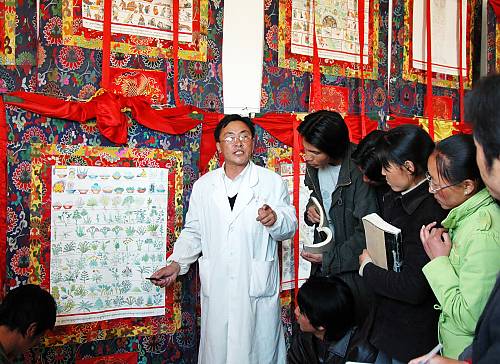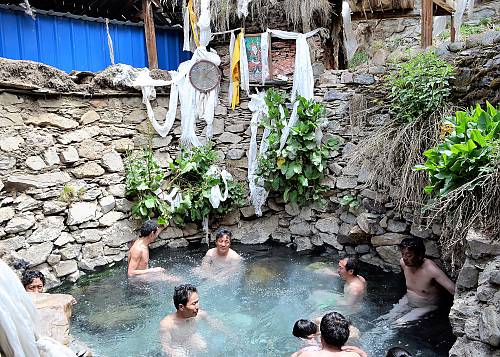Lum medicinal bathing of Sowa Rigpa, knowledge and practices concerning life, health and illness prevention



Lum medicinal bathing of Sowa Rigpa is a practice developed by the Tibetan people as part of a life view based on the five elements and a view about health and illness centered on three dynamics (Lung, Tripa and Pekan). In Tibetan, "Lum" indicates the traditional knowledge and practices of bathing in natural hot springs, herbal water or steam to adjust the balance of the body and mind, ensure health and treat illness. Influenced by the Bon religion and Tibetan Buddhism, Lum embodies folk experiences in illness prevention and treatment, and reflects the transmission of traditional knowledge represented by the Gyud zhi treatise (the Four Tantras) in present-day health practice. Bearers and practitioners include farmers, herdsmen and urban residents in Tibetan areas, with the Manpa (physician), Lum Jorkhan (pharmacist) and Manyok (assistant) bearing special responsibilities for its transmission. The element plays a key role in improving health conditions, fostering a social code of behaviour and promoting respect for nature. It has been transmitted over the generations through daily life, religious rituals, folkloric activities and medicinal practices, and has also been incorporated into the curricula of modern medical colleges as a complement to formal education.
(Quoted from the entry of UNESCO Intangible Heritage List)




